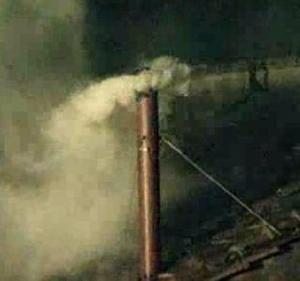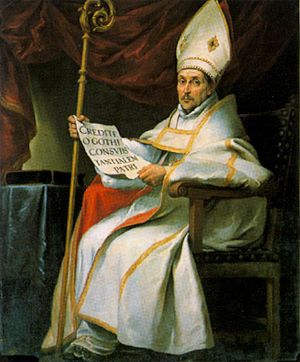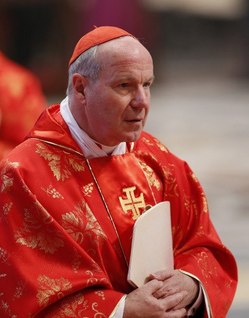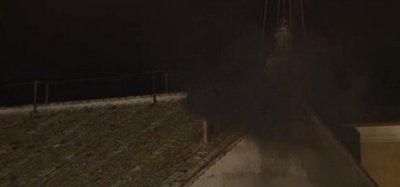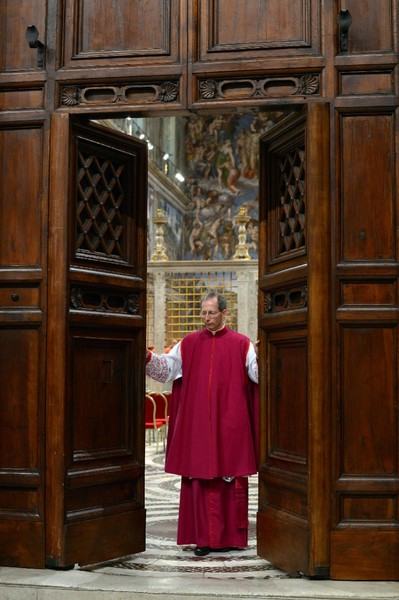Ratzinger on the Holy Spirit electing a pope
The well-known journalist John Allen quoted Pope Benedict about the role of the Holy Spirit’s work in the conclave:
Cardinal Joseph Ratzinger was asked on Bavarian television in 1997 if the Holy Spirit is responsible for who gets elected. This was his response:
I would not say so, in the sense that the Holy Spirit picks out the Pope. … I would say that the Spirit does not exactly take control of the affair, but rather like a good educator, as it were, leaves us much space, much freedom, without entirely abandoning us. Thus the Spirit’s role should be understood in a much more elastic sense, not that he dictates the candidate for whom one must vote. Probably the only assurance he offers is that the thing cannot be totally ruined.
Further:
There are too many contrary instances of popes the Holy Spirit obviously would not have picked!
Saint Leander of Seville
The Church honors a Spanish saint that many I am sure have not heard about, or know very little of today, Saint Leander of Seville (c. 534-c.600). His parents were known to be pious, his brothers were the famous Saint Isidore of Seville and Saint Fulgentius of Ecija and his sister was Saint Florentina of Cartegena. Leander was both a Benedictine monk and bishop in Seville.
Novena of Prayer to Saint Benedict, Day 2
Step by Step Through the Papal Interregnum
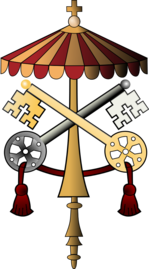 If you are looking for a quick run-through of the papal inter-regnum, almost over at this writing, you may be interested in the booklet by The Catholic Truth Society, a handy Step by Step Through the Papal Interregnum (2013) by Monsignor Charles Burns, OBE.
If you are looking for a quick run-through of the papal inter-regnum, almost over at this writing, you may be interested in the booklet by The Catholic Truth Society, a handy Step by Step Through the Papal Interregnum (2013) by Monsignor Charles Burns, OBE.
Novena of Prayer to Saint Benedict, Day 1
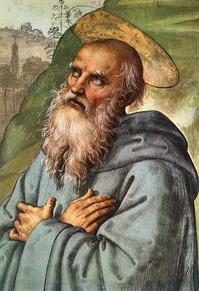 Today begins nine days of prayer to Saint Benedict, ending at First Vespers of Saint Benedict’s Transitus (March 20). On March 21, many Benedictine monasteries around the world will observe the death of Benedict (+547) with solemnity, if you follow another liturgical calendar other than the Roman one, while other monasteries will celebrate July 11 as a feast, the translation of Benedict’s bones.
Today begins nine days of prayer to Saint Benedict, ending at First Vespers of Saint Benedict’s Transitus (March 20). On March 21, many Benedictine monasteries around the world will observe the death of Benedict (+547) with solemnity, if you follow another liturgical calendar other than the Roman one, while other monasteries will celebrate July 11 as a feast, the translation of Benedict’s bones.
Cardinal’s mother doesn’t think son can handle the …
The Litany Run
 Those recent college graduates with educational debt need to pay off their debts prior to following their vocation as a priest, brother, nun or sister. No one is allowed to carry debt into religious life. Morally and economically religious orders can’t assume the educational debt of new recruits. They can help, but it is unfair for them shoulder the entire financial burden given finances today. Some orders, depending on the size of the loan will pay the student loans off over time as the new recruit progresses in the order. But there are ways to work through the financial burden without getting despondent.
Those recent college graduates with educational debt need to pay off their debts prior to following their vocation as a priest, brother, nun or sister. No one is allowed to carry debt into religious life. Morally and economically religious orders can’t assume the educational debt of new recruits. They can help, but it is unfair for them shoulder the entire financial burden given finances today. Some orders, depending on the size of the loan will pay the student loans off over time as the new recruit progresses in the order. But there are ways to work through the financial burden without getting despondent.
Black smoke on the first ballot
Extra omnes
At certain point the Papal Master of Ceremonies, Monsignor Guido Marini, a priest of the Archdiocese of Genova, announces “Extra omnes,” a polite way of saying that all those not belonging in the conclave with the cardinals are to leave now. Monsignor Marini then walks through the center of the Sistine Chapel to the doors and closes them.
